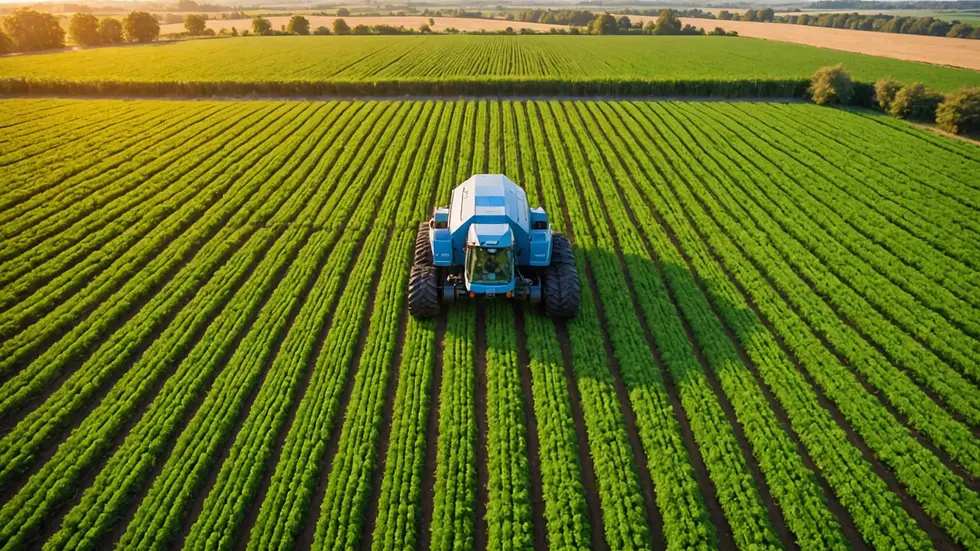Innovations Driving Food Sustainability
- jamalmaxey
- Feb 12
- 4 min read
The world is facing unprecedented challenges in food production and distribution. Growing populations, climate change, and resource depletion are putting immense pressure on our food systems. However, innovation is playing a crucial role in creating sustainable solutions. This blog post explores the latest innovations driving food sustainability, highlighting how technology, policy, and community engagement can work together to secure a better future for our planet.
Rethinking Food Sustainability
Food sustainability encompasses practices that ensure the ecological health of our planet while also providing social equity and economic viability. Innovative approaches are necessary for developing sustainable food systems that meet the demands of future generations. These can include advanced agriculture techniques, urban farming, and reducing food waste.
Innovative technologies, such as vertical farming, smart sensors, and biotechnology, are at the forefront of this movement. They are not only reshaping our approach to food production but also encouraging consumers to make responsible choices.

The Role of Technology in Food Production
Technology has transformed the food industry, making production more efficient and sustainable. One major innovation is precision agriculture, which utilizes drones and sensors to monitor crops. These tools provide data on soil health, moisture levels, and pest activity, allowing farmers to apply resources exactly when and where they are needed. This precision reduces waste and minimizes the environmental impact.
Another exciting technology is aquaponics, a sustainable method combining aquaculture and hydroponics. Fish waste provides organic nutrients for plants, while the plants filter and purify the water for the fish. This symbiotic relationship maximizes yield in a compact space, thus conserving resources.

Biotechnology also offers promising solutions, such as genetically modified organisms (GMOs) designed for resilience against climate stressors. These innovations can lead to higher crop yields and reduce dependency on chemical pesticides. However, transparency is key, and consumers must be educated about the safety and benefits of these technologies.
What are examples of sustainable food systems?
Numerous examples exemplify how different regions and organizations are implementing sustainable food systems. For instance, community-supported agriculture (CSA) programs allow consumers to buy seasonal produce directly from local farmers. This model not only supports local economies but also reduces carbon emissions associated with transporting food over long distances.
Additionally, some cities have embraced urban farming initiatives, transforming vacant lots and rooftops into productive gardens. These urban farms contribute to food security, reduce food deserts, and promote community engagement. They often utilize composting and other sustainable practices to enhance soil health and reduce waste.

In terms of policy, various governments are introducing regulations to promote sustainable practices. For example, incentives for organic farming and restrictions on single-use plastics are becoming more common. These policies encourage businesses and consumers to adopt more sustainable behaviors.
Moreover, initiatives like food waste reduction campaigns are gaining traction. These programs educate consumers on how to store food properly, utilize leftovers, and compost organic waste. By directly addressing the staggering amount of food waste produced each year, we can significantly decrease our environmental footprint.
Consumer Choices and Their Impact
Consumers play a vital role in the success of our food systems. Making informed choices can create demand for more sustainable products. On the supermarket shelves, look for labels that indicate ethically sourced, organic, or local items. These products often have a lower environmental impact and promote sustainable farming practices.
Moreover, adopting a plant-based diet can significantly reduce one's carbon footprint. Research indicates that livestock farming contributes to greenhouse gas emissions, deforestation, and water scarcity. By incorporating more plant-based meals into our diets, we can contribute to a healthier planet.
It is also essential to support local businesses and farmers. Farmers' markets and local co-ops provide fresh produce while cutting down on transportation emissions. Engaging with local producers fosters community ties and supports the local economy.
The Future of Food Sustainability Innovations
The future of food sustainability lies in collaborative efforts among individuals, businesses, and governments. By sharing knowledge and resources, we can build resilient systems that can withstand environmental challenges. Educational programs that teach sustainable practices in schools help raise awareness among younger generations, cultivating a culture of sustainability.
Investing in research and development is also crucial. Technological advancements should focus on sustainability and resilience against climate change. Universities and private companies can collaborate to create solutions that address food security, environmental health, and economic viability.
To facilitate these innovations, global initiatives, such as the sustainable food systems approach, aim to connect stakeholders and promote best practices. By learning from each other and sharing successful strategies, we can enhance food production, minimize waste, and ensure equitable access to nutritious food.

With each step towards innovation, we are laying the groundwork for a brighter future for food sustainability. As consumers and advocates, we must remain diligent in supporting practices that not only feed our communities but also respect the Earth.
Creating a Sustainable Future Together
The path towards food sustainability requires a collective effort. By embracing innovation and making informed consumer choices, we can drive change within our food systems. Every decision matters, from the farms cultivating our produce to the policies governing our food systems.
Let’s commit to supporting innovations that promote sustainability, whether through technology, community engagement, or education. The challenge is great, but with determination and collaboration, a more sustainable future is within reach. Together, we can ensure that future generations inherit a healthy planet and a resilient food system.

Comments